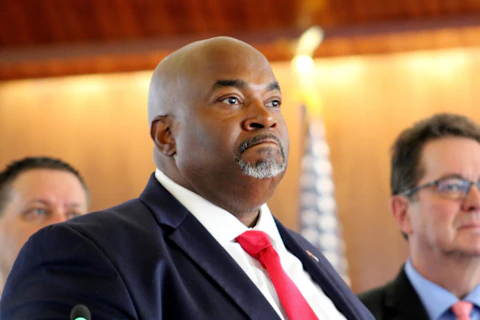A UNC-Greensboro student tells us why her first election might just be the most important.
This article is part of COURIER’s Your Vote 2020 hub. For more stories from each of the battleground states, along with national reporting, visit the site here.
On Nov. 8, 2016, as the polls were closing and election results began to air, the line of voters was still out the door at my precinct.
I could feel the energy in the room become heavier, my own heart sinking as I saw the map turn red. My neighbors shuffled in line, still committed to cast their ballots even as they worriedly checked their phone for the latest election coverage.
Everyone who arrived before the polls closed had the chance to have their vote counted—but I, who had been there since 6 a.m., didn’t vote. I was 17 years old and had taken the day off school to work the polls. A senior in high school, I had been excited to play what role I could in what seemed like the most important election of my life, when so many were certain we would elect the first woman president of the United States.
Four years later, we’re fast approaching the first presidential race I can actually vote in, and it has undoubtedly replaced 2016 as the title champion for consequential elections—-especially for young voters like me.
As a senior at UNC-Greensboro and an organizer with NextGen North Carolina, which is running the largest youth voter registration program in the state, I speak with other young and first-time voters every day who are counting down the days until they can cast a ballot.
While the conventional narrative would seem to indicate young people are apathetic about voting, I’m finding that to be far from true. In fact, a recent NextGen poll found that 77% of young Americans in battleground states are more enthusiastic about voting this November than in prior elections.
The motivations for young people to vote and organize have piled on the past several years — from Donald Trump’s blatant racism and the appointment of anti-choice, ultra-conservative judges; to the humanitarian crisis at the border and the accelerating, unchecked climate crisis.
As I graduated high school and worked my way through college, the headlines have become more and more fearsome while the Trump administration and its allies in Congress and statehouses have pursued a ruthlessly selfish and dangerous agenda. This time last year, I would have said it was impossible that I could feel more urgency around casting my first ballot in a general election — but then 2020 happened.
In the past six months alone, the Trump administration and the GOP-led Senate have driven our nation further into chaos and crisis, fanning the flames of racism and anti-Black violence and hopelessly mishandling a grave pandemic leading to the deaths of over 180,000 Americans.
Meanwhile, the regressive and bigoted policies of Republican lawmakers and judges have struck a personal chord, as I came out to my friends and family as a queer woman and watched the civil liberties and humanity of LGBTQ Americans once again put up for debate on the national stage.
Unfortunately, even as the stakes and enthusiasm around voting have risen—for both me and voters of all ages—the barriers to casting a ballot have also increased.
The coronavirus crisis has required us to chart new territory as voters, as students, and as organizers.
An unprecedented number of North Carolinians have requested an absentee ballot, while NextGen polling finds that more than half of young voters do not yet have the information or resources they need to vote by mail.
College students have been rocked by uncertainty around virtual or in-person classes and housing, while we worry about our health and that of our families. And voter registration and mobilization efforts like NextGen’s have overhauled their programs, replacing face-to-face organizing with digital organizing to reach young voters safely and securely.
Despite these challenges, I will soon cast my ballot alongside a historic number of young voters, because what’s at stake for my generation has become clearer than ever.
We can continue down the path that Donald Trump and his cronies continue to race down, or we can harness the power of the youth vote to elect leaders who will make real progress on the issues that young Americans care about. We have the chance to wholly reject Trumpism by sending Joe Biden to the White House, defeating Thom Tillis and electing Cal Cunningham, re-electing Gov. Roy Cooper, and flipping our state’s legislature to Democratic control. Millennials and Gen Z’ers make up nearly 40% of the electorate, which means when we show up, we win.





